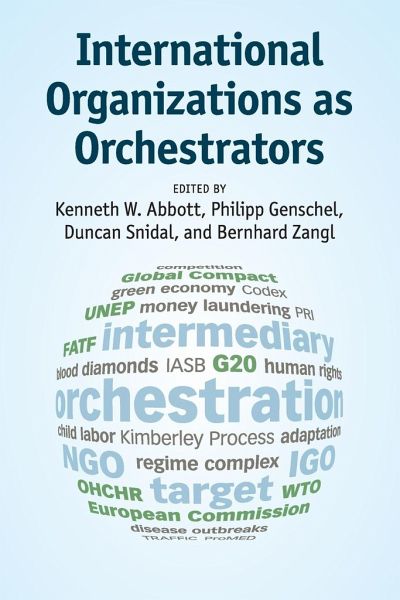
International Organizations as Orchestrators
Versandkostenfrei!
Versandfertig in 1-2 Wochen
42,99 €
inkl. MwSt.

PAYBACK Punkte
21 °P sammeln!
For advanced students in economics, this textbook provides a clear and concise introduction to dynamic economic theory and analysis. Sorger guides students step-by-step through the most popular model structures and solution concepts, from the simplest dynamic economic models to complex problems of dynamic general equilibrium frameworks.














